Podcast: The Academic Minute
-

Kathleen Lubey, St. John’s University – What Does Pornography Tell Us?
What does pornography tell us? Kathleen Lubey, professor of English at St. John’s University, examines this from a historical standpoint. Kathleen Lubey is a literary scholar and writer at work on piecing together the complex history of pornography. A professor at St. John’s University and specialist in eighteenth-century literature, her teaching and research spans British…
-
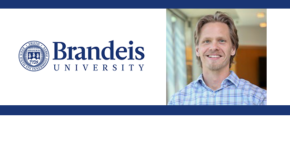
Joel Christensen, Brandeis University – Women, Witchcraft, and Greek Myth
Differences can lead to fear and persecution. Joel Christensen, professor of classical studies and senior associate dean for faculty affairs at Brandeis University, examines women’s stories from ancient Greece to the recent past. Joel Christensen (he/his) is Professor of Classical Studies at Brandeis University where he also serves as Senior Associate Dean for Faculty Affairs…
-

Darby Saxbe, University of Southern California – Dad Brain? How Fatherhood Changes the Brain
We’ve heard of dad bod, but how about dad brain? Darby Saxbe, professor in the psychology department at the University of Southern California, looks at how fatherhood can change the brain. Darby Saxbe is a professor in the psychology department at the University of Southern California, where she co-directs the USC Center for the Changing…
-

Jeffrey Herlihy-Mera, University of Puerto Rico Mayaguez – The Puertoricanization of U.S. Higher Ed
Should Spanish be a domestic language in higher education? Jeffrey Herlihy-Mera, professor of humanities at The University of Puerto Rico-Mayaguez, discusses this question. Jeffrey Herlihy-Mera is a professor of Humanities at the Universidad de Puerto Rico-Mayagüez and 2022 Obama Fellow at the Obama Institute for Transnational American Studies in Mainz, Germany. His books include, Decolonizing…
-
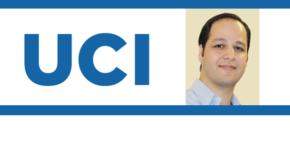
Rahim Esfandyar-Pour, University of California, Irvine – A Health Monitoring Wearable Operates Without a Battery
Removing batteries from wearable tech can open it up to more people. Rahim Esfandyar-Pour, assistant professor of electrical engineering and computer science and biomedical engineering at the University of California, Irvine, explores how to do so. Rahim Esfandyar-Pour received his M.Sc. and Ph.D. in Electrical Engineering from Stanford University in 2010 and 2014. He is currently…
-
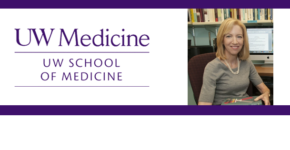
Nancy Jecker, University of Washington School of Medicine – The Ethics of Brain Computer Interfacing
Ethics can be an important part of emerging technology. Nancy Jecker, professor in the department of bioethics and humanities at the University of Washington School of Medicine, discusses one instance where it’s vital to be careful. My research explores bioethics, moral philosophy, and global ethics. It spans a range of topics, including robots and AI…
-
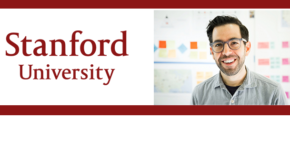
sam seidel, Stanford University – Creative Hustle
Sometimes simple changes can have big results. Sam Seidel, k12 lab director of strategy and research at the d. school at Stanford University, discusses the benefits of creative hustling. sam seidel, co-author, Creative Hustle: Blaze Your Own Path and Make Work That Matters. His previous books include Hip Hop Genius and Hip Hop Genius 2.0.…
-
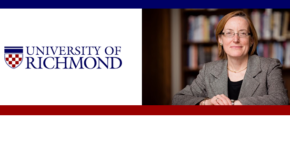
Sandra Peart, University of Richmond – We Need Capable, Ethical Leaders – Now More Than Ever
Good leaders can be hard to find. Sandra Peart, dean and E. Claiborne distinguished professor in the Jepson School of Leadership Studies at the University of Richmond, says it’s a society-wide problem. Sandra J. Peart is dean and E. Claiborne Robins Distinguished Professor in Leadership Studies at the University of Richmond’s Jepson School of Leadership…
-
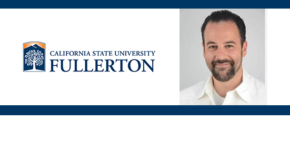
Ioakim Boutakidis, California State University Fullerton – Boys and Men’s Struggles in School Reveal a Systemic Inequity
The mental health of males demands closer focus. Ioakim Boutakidis, professor of child and adolescent studies at California State University, Fullerton, explores how it manifests in a school setting. Ioakim Boutakidis is a professor of Child and Adolescent Studies at California State University Fullerton, where he has also served as Faculty Fellow of Student Success,…
-

Kerry Whigham, Binghamton University – How Can Genocide Be Prevented?
Genocides don’t begin overnight, so how can we stop them before they get started? Kerry Whigham, assistant professor of genocide and mass atrocity prevention at Binghamton University, explains. Kerry Whigham is Assistant Professor of Genocide and Mass Atrocity Prevention at Binghamton University and Co-Director of its Institute for Genocide and Mass Atrocity Prevention. His first…